Not Cleaning This Makes Your Home a Fire Risk, Experts Say
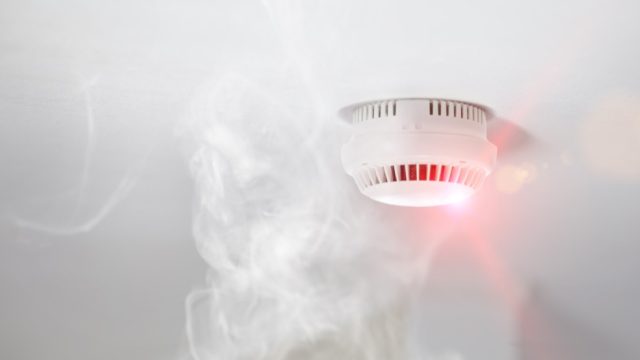
In an average year, there are approximately 353,100 residential fires in the U.S., causing over 2,600 civilian deaths, 11,000 injuries, and more than $7.2 billion in property damage, according to the National Fire Prevention Association (NFPA). However, it’s not just candles or cooking mishaps that can put your home and wellbeing in jeopardy. Experts say that not cleaning certain items in your home can also present a serious fire risk. If you want to protect yourself, read on to discover which areas of your home you need to start cleaning now.
RELATED: If You See This in Your Basement, You’re at Risk for a Fire, Experts Say.
1
Dryer vents
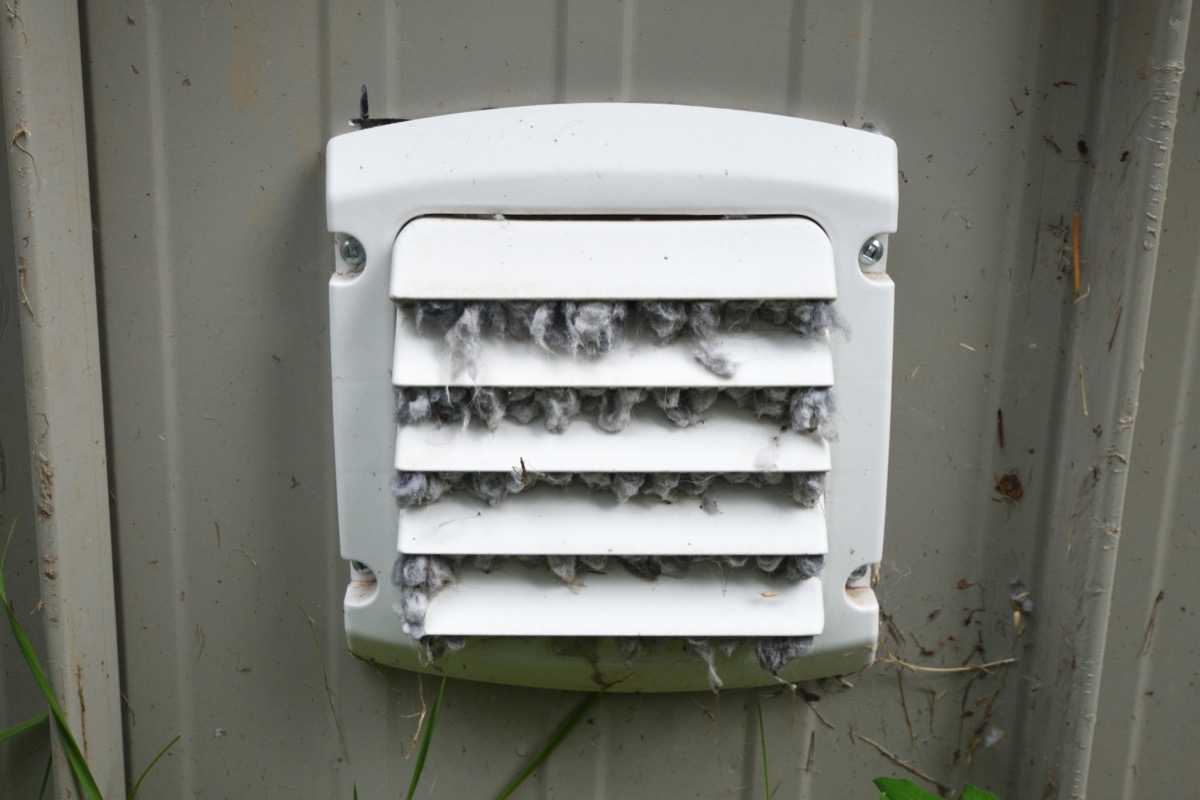
If you’re not attending to your dryer vents on a regular basis, you could be putting your life at risk. According to the NFPA, nearly 16,000 home fires can be attributed to washing machines or clothes dryers every year.
“We advise having a qualified professional inspect your dryer vents as a safety precaution,” says Mark Dawson, chief operating officer of Mister Sparky and One Hour Heat & Air Conditioning. “They will be able to reach areas in the vent that the average homeowner can’t and will ensure all excess lint is removed. If all the accumulated lint is not removed, it increases the probability of experiencing a fire, in addition to reducing the efficiency of your appliance.”
Dawson notes that if you see excess lint building up behind your dryer or notice a moldy smell, those are both signs you need to have your vents cleaned out in the near future. In the meantime, he recommends cleaning your dryer’s lint trap regularly, including unplugging your dryer, vacuuming the lint trap, washing it with soap and water, and allowing it to dry completely to prevent lint build-up.
RELATED: 40 Percent of People Only Wash This Clothing Item Once a Year, Survey Says.
2
HVAC registers

Your HVAC system may be good at keeping you cool, but if it’s not cleaned properly, it may present a fire risk.
“A build-up in your HVAC register will act as kindling which will result in a spark,” explains home builder David Shell, founder and CEO of TradsemenCosts.
Additionally, Shell cautions that uncleaned HVAC registers can trap warm air and cause your system’s motor to overheat, posing yet another potential fire risk.
3
Range hood filters
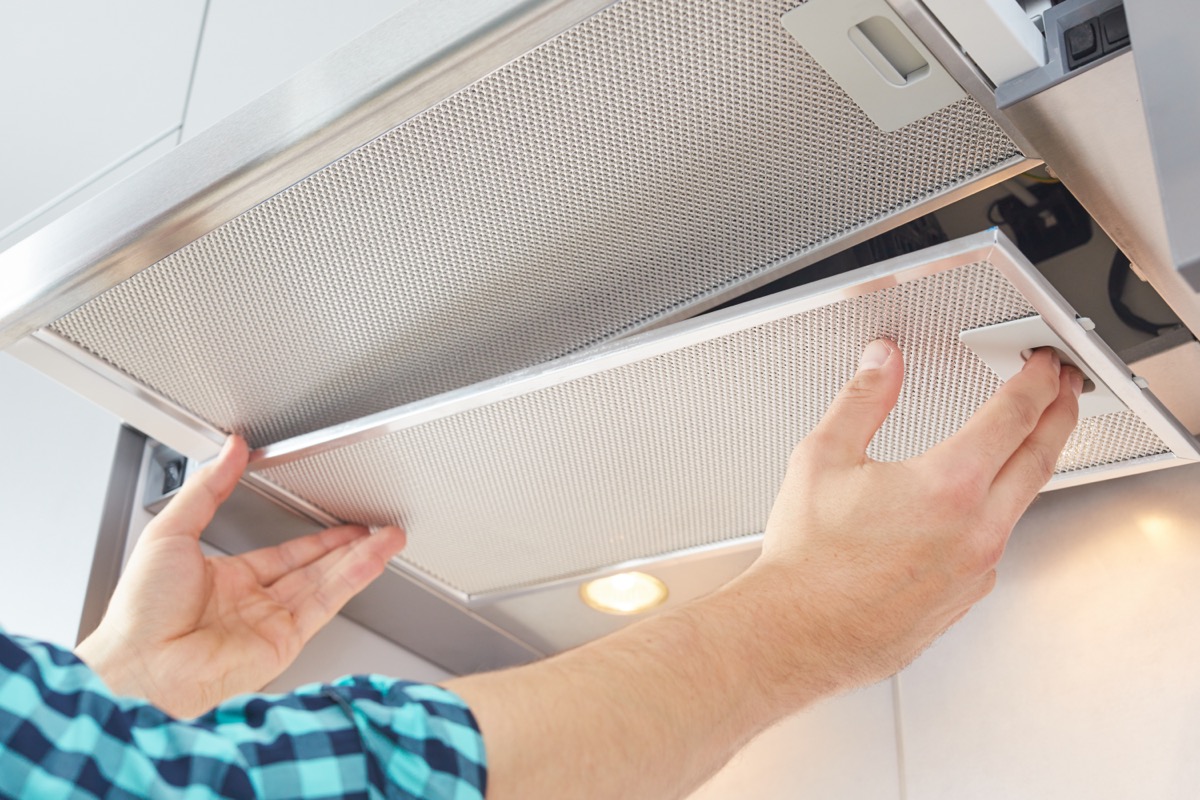
Approximately 49 percent of home fires start in the kitchen, but it’s not just an unattended dish on your stovetop or in your oven that could be jeopardizing your safety.
“Grease build-ups occur in your exhaust systems and kitchen filters, which will ignite by even the smallest sparks. The longer your kitchen goes uncleaned, the more grease will build up, and the larger the risk,” Shell explains.
4
Chimneys
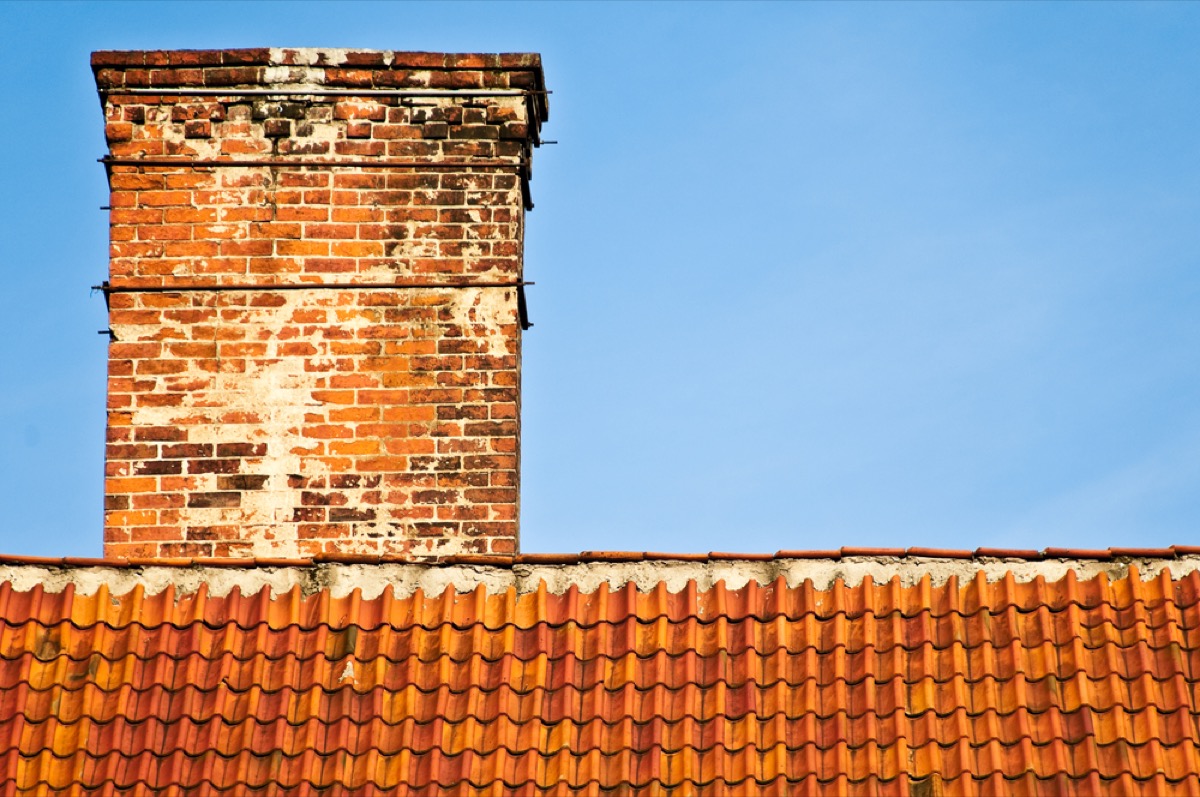
There are few things as pleasant as gathering around a crackling fire on a chilly night. Unfortunately, if you’re not getting your chimney cleaned on a regular basis, that cozy ritual could present a serious safety risk.
“Creosote, a byproduct of combustion, will gather in your chimney every time you use your fireplace. Over time, high temperatures will cause creosote to ignite,” says Shell. To help mitigate this risk, the NFPA recommends having your chimney cleaned and inspected at least once a year.
5
Heaters
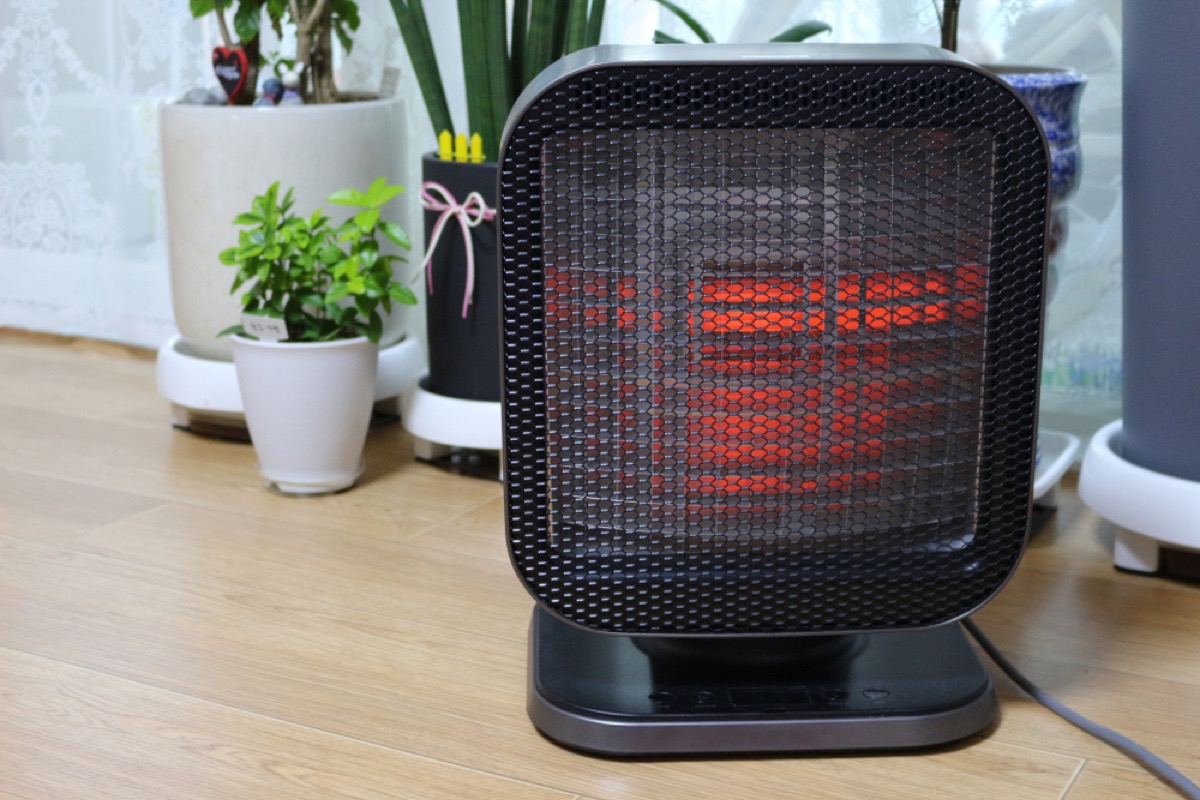
It’s not just keeping flammable items in close proximity to your space heater that can present a fire risk—if you’re not cleaning your heater often enough, you could be putting yourself in harm’s way.
“Over time, dust will naturally accumulate, posing a fire hazard as dust particles can ignite quickly if heaters suddenly cause a spark,” explains Glenn Wiseman of Top Hat Home Comfort Services, a home repair and maintenance company.
6
Toaster ovens
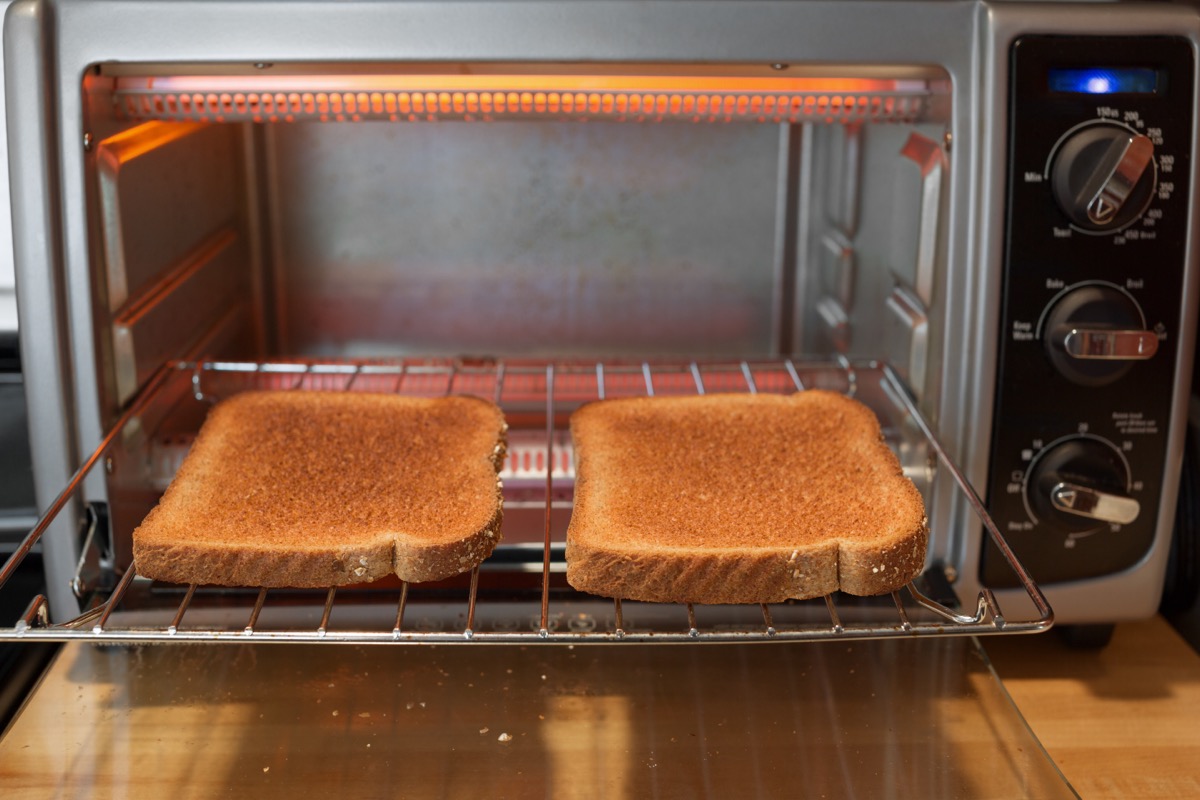
You may have eaten that pizza bagel weeks ago, but the resulting debris could be a fire hazard weeks or even months later if you haven’t cleaned it.
“Crumbs at the bottom of the toaster could accumulate, and if reheated, they could start smoking up the entire appliance,” explains Wiseman.
RELATED: If You’re Doing This in the Shower, Doctors Say to Stop Immediately.